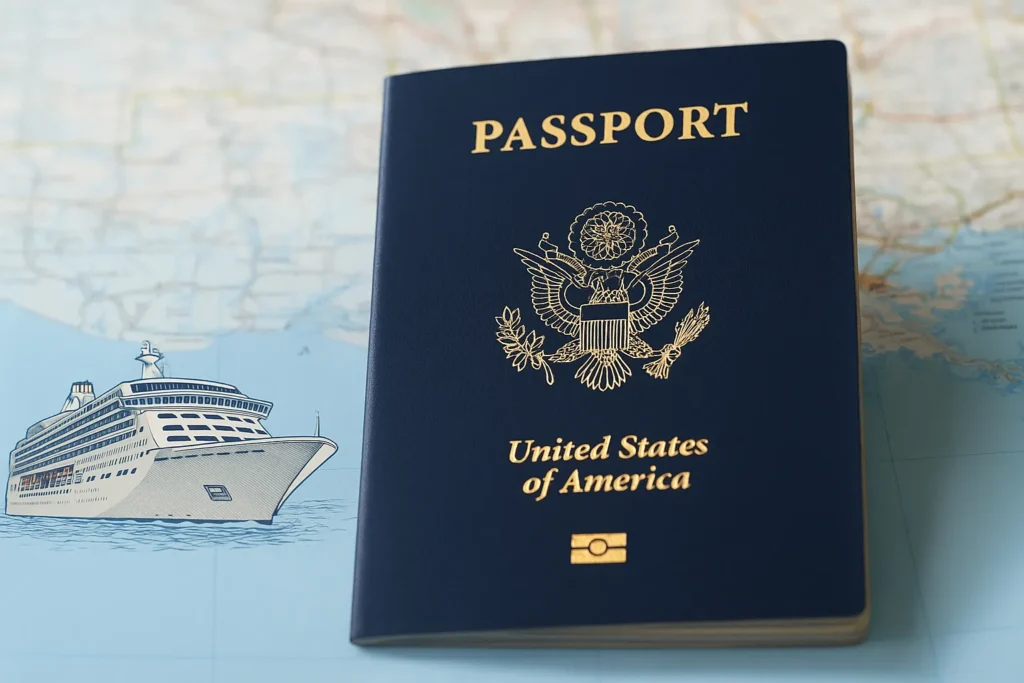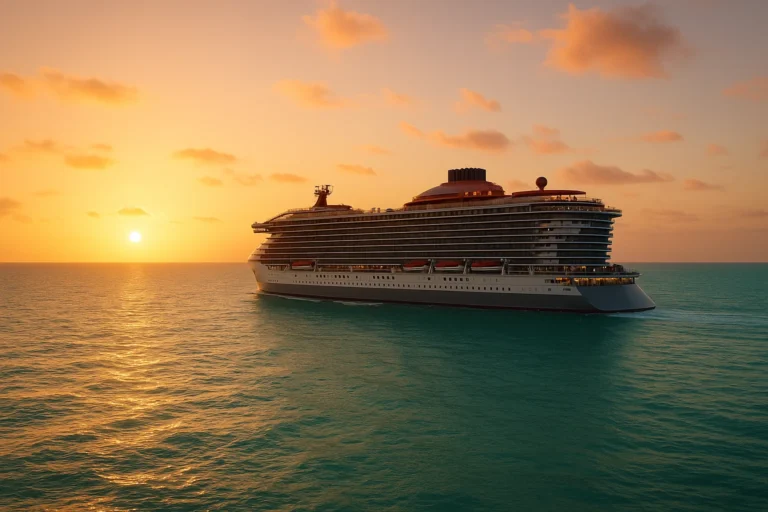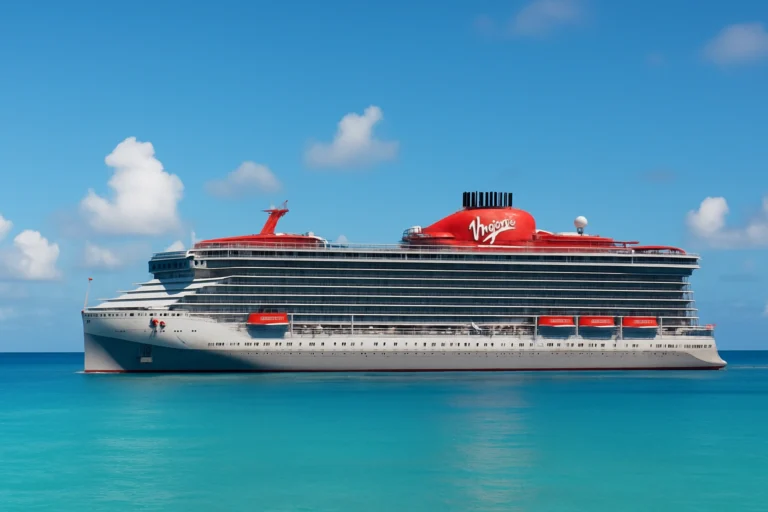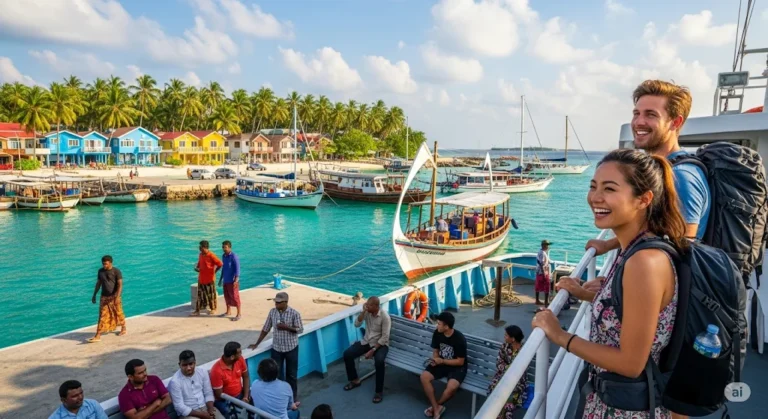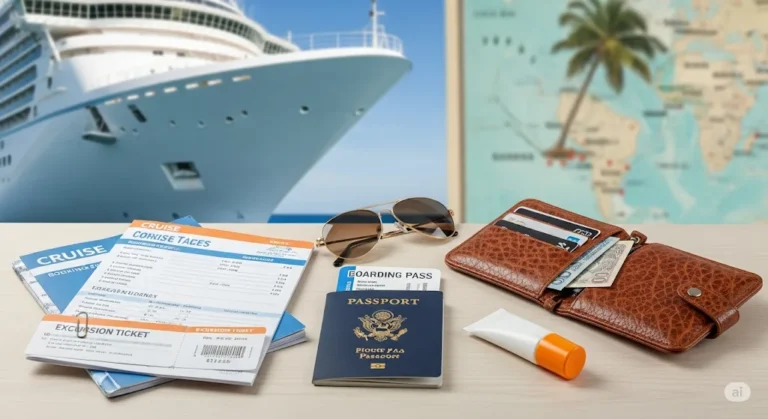Do You Need a Passport for a Cruise? (2025 Rules)
🛳️ Do You Need a Passport for a Cruise? (2025 Rules)
Planning a cruise in 2025? Understanding passport requirements is one of the most crucial steps to ensure a smooth, stress-free sailing experience. The documentation you’ll need can vary significantly depending on your cruise itinerary, your citizenship, and the specific ports of call. This guide will break down the essential requirements, helping you prepare properly for your upcoming voyage.
🔄 Closed-Loop Cruises: When a Passport Isn’t Always Mandatory
A **closed-loop cruise** is defined as an itinerary that begins and ends in the same U.S. port. For U.S. citizens, these cruises, particularly those traveling to destinations in the Western Hemisphere (such as Canada, Mexico, the Caribbean, and Bermuda), often have more flexible documentation requirements compared to other international travel. This can be a convenient option for travelers who do not have a valid passport.
✅ Acceptable Identification for U.S. Citizens on Closed-Loop Cruises
While a passport is always the most recommended form of ID, U.S. citizens on closed-loop cruises may typically use one of the following combinations:
- ✔ An **original or certified copy of a U.S. birth certificate** (hospital birth certificates and notarized copies are generally NOT accepted).
- ✔ A **government-issued photo ID** (e.g., a driver’s license or state-issued identification card) for travelers aged 16 and older.
- ✔ An **Enhanced Driver’s License (EDL)**, which is available in some states and serves as proof of identity and U.S. citizenship for land and sea travel to specific Western Hemisphere countries. Note: EDLs are not valid for air travel.
- ✔ An **Original Certificate of Naturalization** or a **Consular Report of Birth Abroad**.
**Important Note:** While U.S. Customs and Border Protection (CBP) may allow these alternative documents for re-entry into the U.S., some foreign countries you visit on your itinerary might still require a passport for entry or disembarkation. Always verify the specific entry requirements for each country your cruise will visit with your cruise line and the relevant embassy/consulate well in advance.
🌍 International Cruises: Passport Requirements Are Essential
For cruises that begin or end in a foreign port, or that involve international air travel to reach your embarkation point, a valid passport is almost always a strict requirement for all travelers, regardless of citizenship. This includes popular itineraries like transatlantic crossings, cruises in Europe, Asia, or any cruise where your journey starts or ends outside the U.S.
🚨 When a Passport Is Crucial
Ensure your passport meets these critical criteria:
- ✔ **Validity Period:** Your passport must typically be valid for at least **six months beyond your intended travel dates or the end date of your cruise**. Many countries enforce this “six-month rule” to prevent travelers from overstaying their visas or having an expired passport while abroad.
- ✔ **Blank Pages:** Ensure your passport has sufficient blank pages for entry and exit stamps from each country you visit, as well as any necessary visas. A minimum of two to four blank pages is often recommended.
- ✔ **Visas and Additional Documentation:** Some countries on your itinerary may require specific visas or additional documentation (e.g., health declarations, proof of onward travel) based on your nationality. It is solely your responsibility to research and obtain these well in advance from the embassy or consulate of each country you’ll be visiting.
**Non-U.S. Citizens:** If you are not a U.S. citizen or a U.S. Lawful Permanent Resident (Green Card holder), you will almost certainly need a valid passport from your country of citizenship for any cruise, closed-loop or otherwise, and potentially a U.S. visa for re-entry, depending on your nationality. Green Card holders must also carry their valid I-551 (Green Card).
✅ Advantages of Traveling with a Passport
Even if your cruise technically doesn’t require a passport (e.g., a closed-loop itinerary), most cruise lines and travel experts **strongly recommend** traveling with a valid passport. This single document offers significant advantages and provides peace of mind for unforeseen circumstances.
💡 Why It’s Highly Recommended
- ✔ **Emergency Re-entry:** A passport is essential for emergency air travel back to the U.S. if you need to disembark the ship mid-cruise due to a medical emergency, family crisis, or if you miss the ship in a foreign port. Without a passport, it can be extremely difficult and time-consuming to return home by air.
- ✔ **Simplified Identification:** It streamlines identification processes at foreign ports, customs, and during shore excursions, making your experience smoother and quicker.
- ✔ **Travel Flexibility:** Provides maximum flexibility for unexpected changes to your itinerary, such as rerouted ports or emergency flight diversions. It also allows you to easily book an independent shore excursion or an overnight stay in a foreign country if the opportunity arises.
- ✔ **Proof of Citizenship:** A passport serves as undeniable proof of your U.S. citizenship and identity, which is the gold standard for international travel.
Carrying a passport ensures you’re prepared for nearly any scenario that may arise, transforming potential headaches into minor inconveniences.
🆔 Real ID and Domestic Air Travel Considerations (May 7, 2025)
While the **REAL ID Act** primarily impacts domestic air travel within the United States, it’s an important consideration if you plan to fly to your cruise departure port.
✈️ Understanding the Requirements for Domestic Flights
**Starting May 7, 2025**, every U.S. traveler 18 years of age and older will need a REAL ID-compliant driver’s license or another acceptable form of identification to board domestic flights. This does not directly change cruise boarding requirements (unless your cruise line specifically states it), but it is critical for reaching your cruise ship if you fly to the port. If your driver’s license is not REAL ID compliant (typically indicated by a star symbol), you will need an alternative acceptable ID, such as a valid U.S. passport, to fly domestically after this date.
📂 Explore More in These Categories
📌 Final Thoughts: Cruise Prepared and Confident
In summary, whether you need a passport for your cruise largely depends on your specific itinerary and citizenship. While U.S. citizens may have more flexibility for closed-loop cruises, **having a valid U.S. passport is always the recommended and safest approach for any international cruise, especially in 2025 and beyond.** It provides maximum flexibility, simplifies emergency situations, and ensures hassle-free entry and re-entry to all destinations.
Always check the latest requirements with your cruise line, the U.S. Department of State, and the embassies of all countries you plan to visit. Proper documentation is the key to a truly relaxed and memorable cruise vacation.
❓ FAQ – Frequently Asked Questions
🔹 Can I use a photocopy of my birth certificate for a closed-loop cruise?
No, U.S. Customs and Border Protection generally requires an **original or certified copy** of your birth certificate for closed-loop cruises. Notarized photocopies or hospital birth certificates are typically not accepted.
🔹 How far in advance should my passport be valid?
Most international destinations, and therefore cruise lines, require your passport to be valid for at least **six months beyond your planned return date** from the cruise.
🔹 What if my cruise visits a foreign port, but I don’t have a passport?
For U.S. citizens on closed-loop cruises, you may be permitted to disembark in certain Western Hemisphere countries without a passport. However, having a passport is always recommended, as some foreign ports might have their own requirements, and it’s essential for any emergency re-entry by air.
🔹 Does a Passport Card work for all cruises?
A U.S. Passport Card is valid for re-entry into the U.S. by land or sea from Canada, Mexico, and the Caribbean. It is **not valid for international air travel**, so it would not suffice for cruises that require flying to or from a foreign port.
✍️ What are your thoughts on cruise documentation?
🗣️ Share your experiences below! Did you cruise with or without a passport? What tips do you have for fellow travelers regarding travel documents for cruises?


